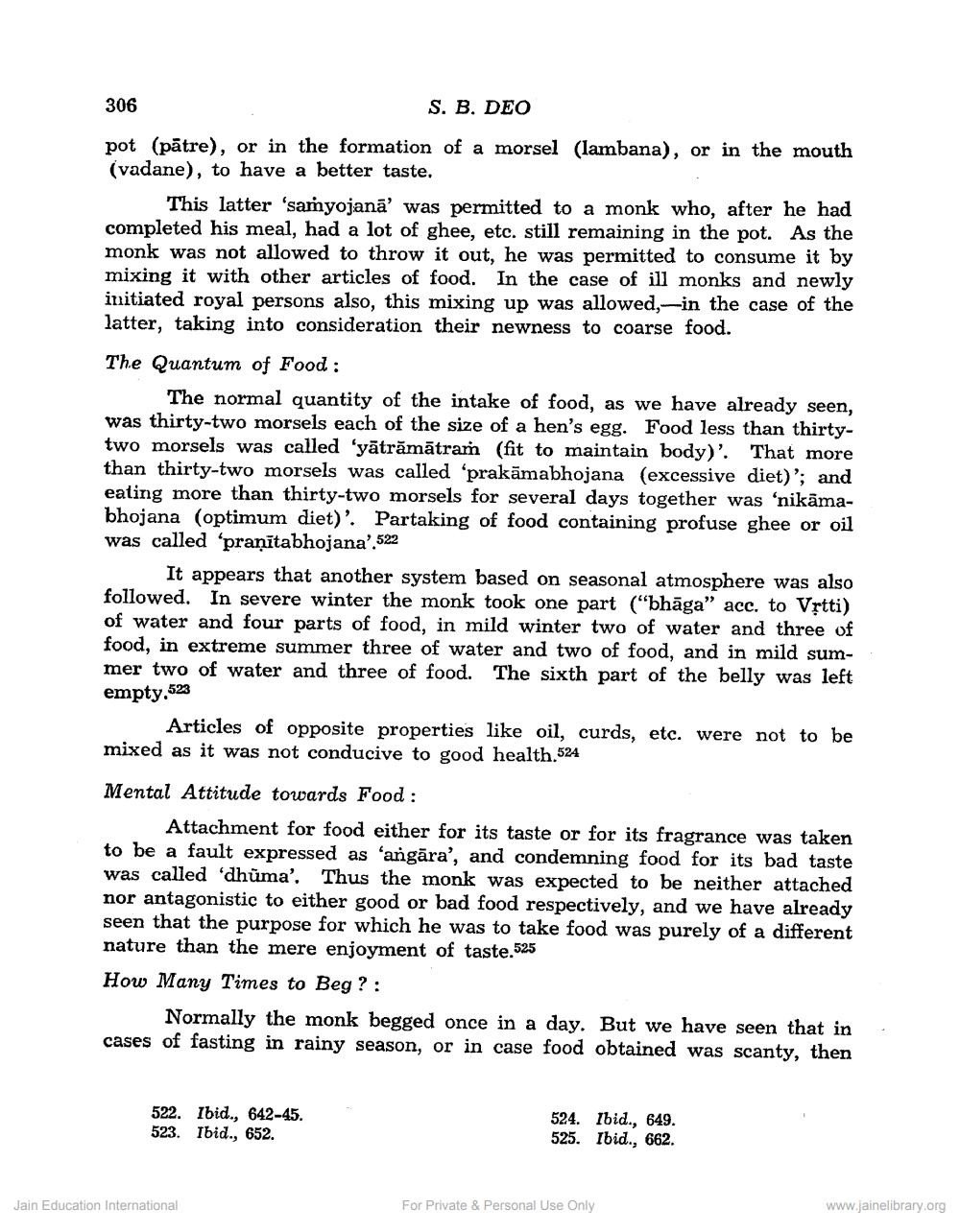________________
306
S. B. DEO
pot (patre), or in the formation of a morsel (lambana), or in the mouth (vadane), to have a better taste,
This latter 'samyojanā' was permitted to a monk who, after he had completed his meal, had a lot of ghee, etc. still remaining in the pot. As the monk was not allowed to throw it out, he was permitted to consume it by mixing it with other articles of food. In the case of ill monks and newly initiated royal persons also, this mixing up was allowed,-in the case of the latter, taking into consideration their newness to coarse food.
The Quantum of Food :
The normal quantity of the intake of food, as we have already seen, was thirty-two morsels each of the size of a hen's egg. Food less than thirtytwo morsels was called 'yātrămātram (fit to maintain body)'. That more than thirty-two morsels was called 'prakāmabhojana (excessive diet)'; and eating more than thirty-two morsels for several days together was 'nikāmabhojana (optimum diet)'. Partaking of food containing profuse ghee or oil was called 'pranītabhojana'.522
It appears that another system based on seasonal atmosphere was also followed. In severe winter the monk took one part (“bhāga" acc. to Vrtti) of water and four parts of food, in mild winter two of water and three of food, in extreme summer three of water and two of food, and in mild summer two of water and three of food. The sixth part of the belly was left empty.523
Articles of opposite properties like oil, curds, etc. were not to be mixed as it was not conducive to good health.524
Mental Attitude towards Food :
Attachment for food either for its taste or for its fragrance was taken to be a fault expressed as 'angāra', and condemning food for its bad taste was called 'dhūma'. Thus the monk was expected to be neither attached nor antagonistic to either good or bad food respectively, and we have already seen that the purpose for which he was to take food was purely of a different nature than the mere enjoyment of taste.525 How Many Times to Beg?:
Normally the monk begged once in a day. But we have seen that in cases of fasting in rainy season, or in case food obtained was scanty, then
522. Ibid., 642-45. 523. Ibid., 652.
524. Ibid., 649. 525. Ibid., 662.
Jain Education International
www.jainelibrary.org
For Private & Personal Use Only




